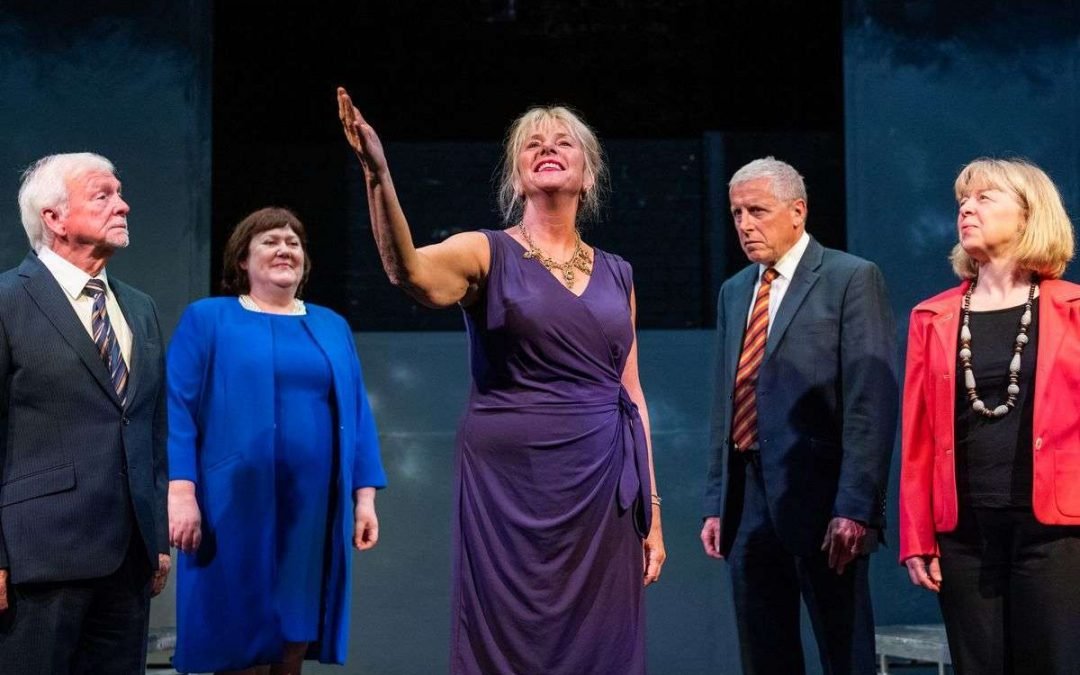
Julius Gender-blind Casting in the West (Your News)
By Jonathan Vickers
Cotswold Players ignore auditionees’ gender when casting Shakespeare’s famously tragic history play.
Our greatest playwright didn’t write many parts for women. In response to this unfairness, some companies have been experimenting in recent years with women playing traditionally male Shakespearean roles. But last autumn (2019), The South West’s Cotswold Players went one step further and decided to audition for all parts in their production of Julius Caesar on a ‘gender-blind’ basis. In other words, the society did not take account of an actor’s gender as a criterion for deciding what role they might play. Then, having cast the play, the Players made textual adjustments, to change the gender of the characters in the play to fit the gender of the actor chosen to play a particular role.
The results were not only surprising but also challenging and exciting. In a cast that was broadly balanced between men and women, the CPs had a female Julius Caesar, with a young male husband; and a female Brutus, with a wife of the same sex. This threw new light on the dynamics of the key relationships and freed the production from the shackles of traditional approaches to the story. It also required more changes to the text than were first expected. Many a ‘he’ and ‘him’ of course had to become ‘she’ and ‘her’. But familiar lines such as ‘friends, Romans, countrymen’ and ‘there is a tide in the affairs of men’ suddenly displayed a kind of sexism, which the creatives decided to eradicate.
This was not just a gimmick. Nor was it simply a pragmatic response to the fact that there are at least as many female as male actors in the theatre. The Cotswold Players wanted to find out if gender could be as unimportant as, say, nationality or skin colour in playing a role; they also wanted to encourage audiences to set aside gender prejudices, and to enjoy the play for its commentary on humanity.
To be sure, we had to make other changes too. It would not have been believable for women to be generals, dictators and senators in Republican Rome. So we brought the setting into the 21st Century, complete with mobile phones, video-conferences, webcams and live drone footage of battle. It was the use of technology, together with the play’s remarkable political relevance, that generated the most audience comment. Of the dozens, possibly hundreds, of items of feedback we received, not one commented on the issue of gender. We think this proves our point.
It is around twenty years since the RSC first cast a black actor as one of Shakespeare’s English kings. Today, colour-blind casting is commonplace in the professional theatre. We should like to think that we have started a ball rolling that will eliminate or, at least dilute, gender as a determining issue in casting too.
